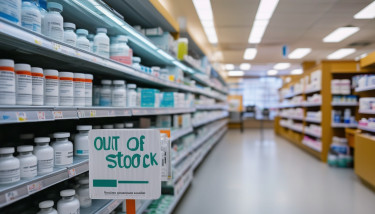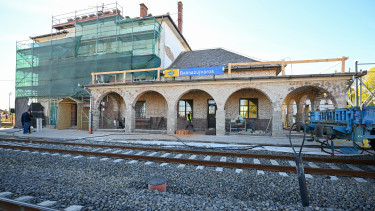Fuel prices to be lowered in Hungary

Most likely due to the strengthening of the forint, the wholesale gross list price of petrol will be lowered by HUF 5 per litre, and the price of diesel will be trimmed by HUF 4 per litre on Friday (17 May). Accordingly we should find the following (average) prices at the pumps two days from now:
- 95-octane petrol: HUF 607 /litre
- Diesel: HUF 605 /litre
Petrol will cost 6.6% (HUF 37) more than at the end of last year, while diesel will be 2.0% (HUF 12) more expensive.
however, COMPARED TO THEIR RESPECTIVE PEAK PRICES THIS YEAR, PETROL will be HUF 43 (-6.6%) PER LITRE CHEAPER AND DIESEL will COST HUF 56 (-8.5%) LESS.


At the end of April, diesel was HUF 14 per litre cheaper than petrol, but the difference will have shrunk to HUF 2 by Friday.

the forint has firmed quite a lot against the us dollar over the past few days,
which could be partly why fuel prices will be lowered.
Key fuel price developments in a nutshell
According to the latest statistics, domestic fuel prices are already below the average price in Hungary's neighbouring countries. For this reason, the Minister of National Economy has not announced any new measures, such as a price freeze, but the government will continue to closely monitor developments on the fuel market. The European Commission is expected to release the latest average fuel price statistics on Thursday.
The government first said in September 2023 that domestic fuel prices should be around the middle of the regional ranking. It "made an agreement" with fuel traders that they will strive to meet this request.
Fuel prices started to rise sharply in mid-January, partly due to market factors and partly due to Hungarian-specific factors. The former included the escalation of the conflict in the Middle East and the OPEC countries' production decisions leading to a surge in the world price of crude oil. The refining premium for petrol has also gone up sharply, driving up the wholesale price of gasoline and ultimately the consumer price.
In addition, 'Hungary-specific' factors also contributed to the increase in petrol prices: at the beginning of January, the excise tax rate was raised in two steps, which led to a HUF 42 increase at petrol stations (presumably part of the HUF 42 was 'absorbed' by the petrol stations, i.e. motorists saw a smaller increase at the pumps, while retail margins narrowed).
The tax hike was necessary due to EU regulations, but was excessive. The government went overboard with the raise as the minimum excise tax level set was enough to meet the EU rule up to EUR/HUF 420, while the forint was and still is (389) way stronger than that.

Meanwhile, the forint has weakened against the dollar this year, which is also a negative development for the domestic fuel market.
Fuel prices rose sharply and were generally in the Top 3 of the regional ranking due to the aforementioned factors. Economy Minister Márton Nagy warned in mid-March that if the agreement with fuel market players - particularly energy group Mol and the Hungarian Petroleum Asssociation (MÁSZ) - is not respected, a state intervention could be needed.
Such an intervention started to loom more seriously in early April. The government requested a price comparison system from the Central Statistical Office (KSH), and Nagy said on 19 April that this comparison will be used to decide whether an intervention was necessary or not.
Portfolio pointed out the fallacy in the stats office's methodology. On 24 April, the Economy Minister came up with specific numbers, saying the price of diesel in Hungary was HUF 10 higher than the regional average, and the price of petrol was HUF 27 higher. Even though the official statistics did not underpin his claims, he gave fuel traders two weeks to lower their prices.
On 29 April, Mol has in a surprise move cut fuel prices at its filling stations by HUF 10 per litre.
Meanwhile, market developments were also favourable (i.e. the oil price fell and the forint strengthened against the dollar), which, together with Mol's move, meant that domestic petrol and diesel prices were not much higher than the regional averages calculated by the KSH.
On 30 April, Nagy said it was a good idea to use the average price only for Hungary's neighbouring countries than for the wider region (which included Bulgaria, Czechia, and Poland too), and that they would consider this when deciding on a possible intervention.
On 3 May, Prime Minister Viktor Orbán said The benchmark should be the average fuel price in neighbouring countries and that was that.
On the same day, Mol announced a change to its pricing regime. Citing greater flexibility to respond to a rapidly changing situation on the world market, it decided that instead of twice a week it may modify prices several times a week.
Fuel traders in Hungary have complied with the government's request, and petrol and diesel prices on the domestic market have reached the average of the neighbouring countries, i.e. the benchmark set by the cabinet for any potential intervention, said Economy Minister Márton Nagy on 8 May.
According to the EC's Weekly Oil Bulletin, the average petrol price for Hungary's neighbouring countries (including Hungary) was HUF 629 per litre as of 6 May, which was HUF 3 or 0.5% lower than in Hungary. Hungary's average diesel price of HUF 614 per litre was HUF 5.5 or 0.9% lower than the HUF 619 average.


Cover photo: Getty Images











